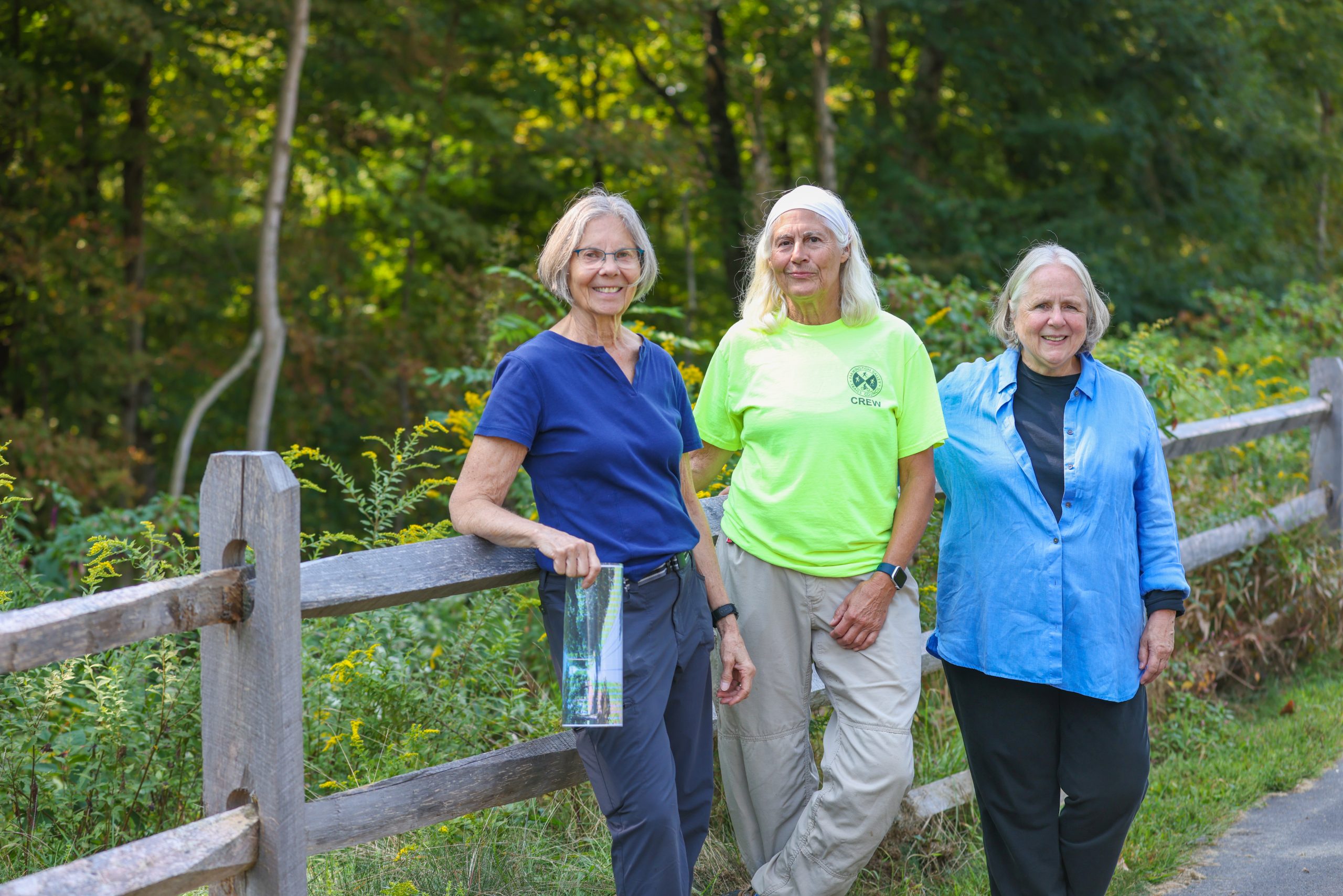
Karen Berger spent the last eight summers removing Japanese knotweed from both sides of town property along the Farmington River Trail in Canton.
She and an army of other Master Gardeners have converted what was a tunnel of invasive knotweed into a spectacular display of native plants along the Collinsville Pollen Trail.
As they work among the dogwoods and native gardens dotting the trail, Berger and other gardeners enjoy fielding questions from passersby and encouraging them to consider planting native plants for pollinators. These gardeners also supervise gardening interns and organize local projects along the trail, directing Eagle Scouts installing birdhouses and fifth-grade classes planting cosmos seeds.
“The Collinsville Pollen Trail has become a passion, a labor of love for us,” says Holly Hambleton ’77 (BFA) of Canton, who often works alongside Berger and fellow gardener Michele Jenks. “Master Gardeners, as a whole, get so hooked on projects that they begin to define who we are.”
The Collinsville gardeners are among more than 700 Master Gardener volunteers who do community projects like this across Connecticut. This army of dedicated gardeners works to beautify and educate their communities through the UConn Extension-administered program. Their public service is a priceless, vital part of UConn’s mission as a land grant university. Last year, Connecticut Master Gardeners provided more than 38,000 volunteer hours to communities across the state.
Master Gardeners, as a whole, get so hooked on projects that they begin to define who we are.
The Master Gardener program is entirely self-funded, relying entirely on donations from alumni and other supporters. These donations pay for classes to train the gardeners and the tools and supplies the gardeners need to tackle projects.
To become qualified as a Master Gardener, each volunteer must take 100 hours of academic training, learning everything from soil chemistry and insects to plant diseases.
“It’s intense. This is not your garden club lecture,” says Sarah Bailey, Hartford Country Master Gardener coordinator.
Their volunteer work is science-based and quantified. For example, Hambleton participated in the Farmington Valley Butterfly Count to help track pollinators in the gardens.
After completing their classroom and field training, each gardener must donate 10 hours of community service and 10 hours of office work a year. Many take shifts at eight area UConn Extension offices across the state and the Bartlett Arboretum in Stamford. There they provide free advice on everything from trimming pear trees and identifying insects to getting rid of goutweed.
Berger, a retired Montessori teacher, volunteers a whopping 400 hours a year. She says she became a Master Gardener simply because she wanted to learn more about gardening.
“I was a naive gardener,” Berger explains. “I would go into the garden center and say, ‘You’re pretty, you’re coming home with me.’ And I never knew why the plant died because I never thought about anything it needed.”
Others join to get certification to help them in their jobs in landscaping, greenhouses, and nurseries. Or they want to grow fruits and vegetables to support their local food pantries. Still others simply want to reconnect with nature, Bailey says.
Every project the gardeners take on must benefit a non-profit organization or a local community, fulfilling UConn’s public engagement role as a land grant university.
“We’re kind of a hidden gem of the university,” says Bonnie Burr ’83 (CAHNR), assistant director of UConn Extension, which is located within UConn’s College of Agriculture, Health and Natural Resources. “When you talk about the value of time and commitment, the impact is far-reaching.”
Learn more about the Master Gardener program.